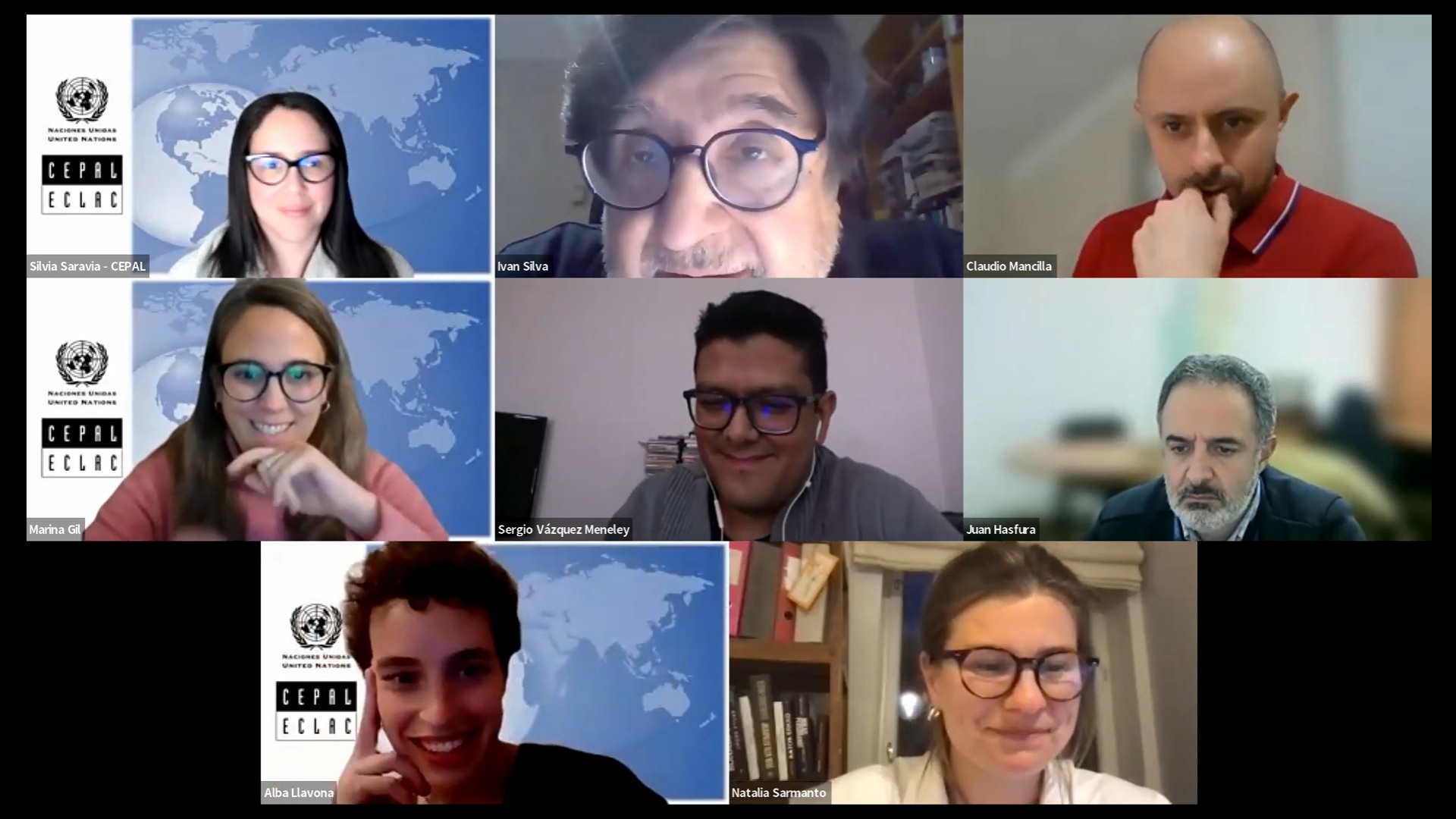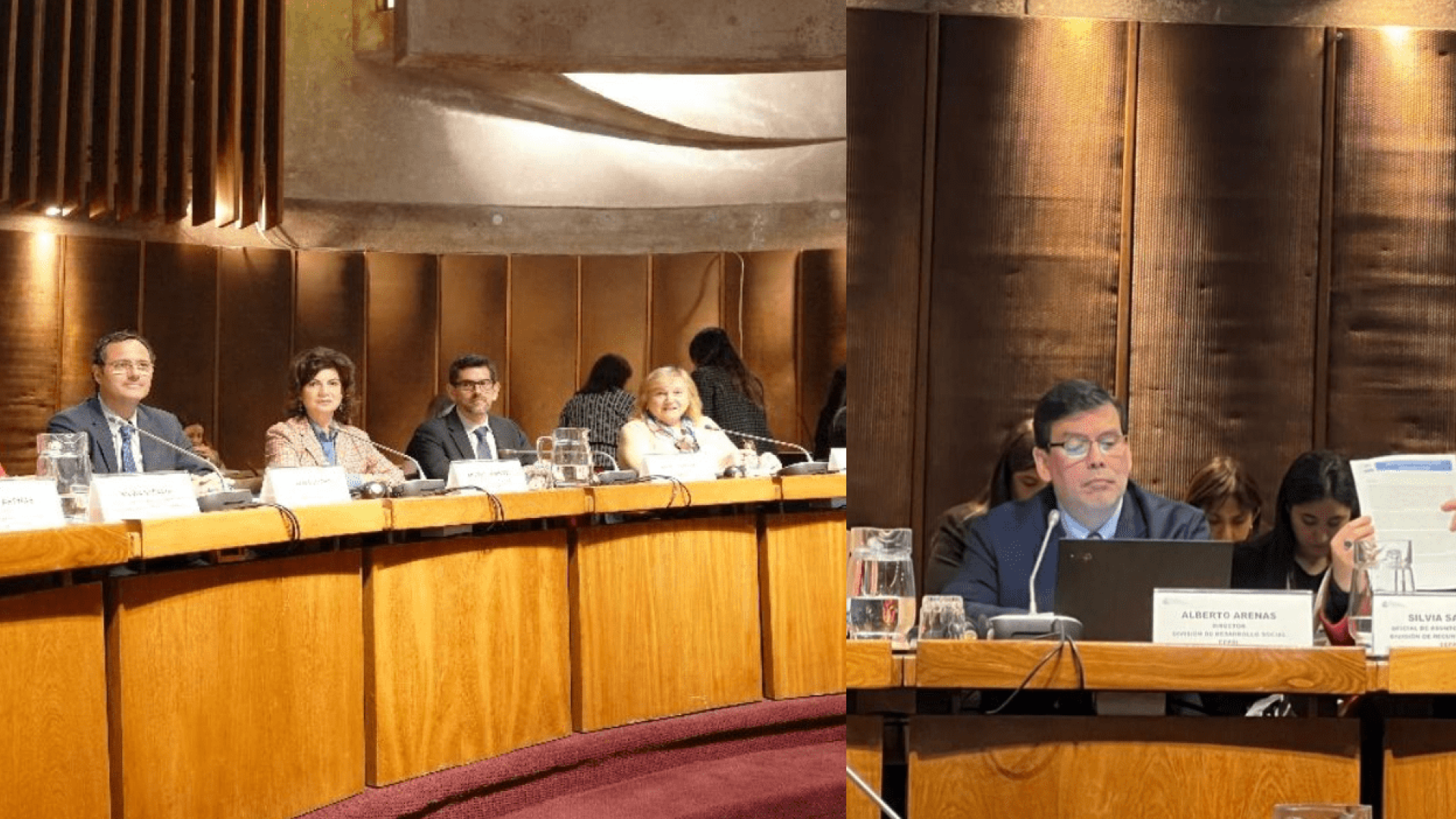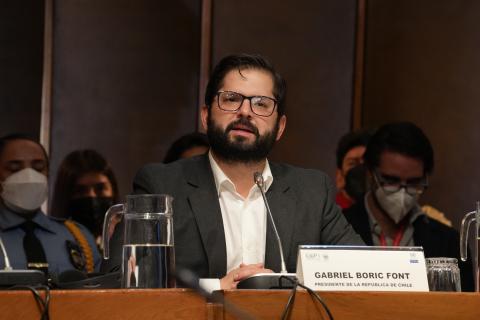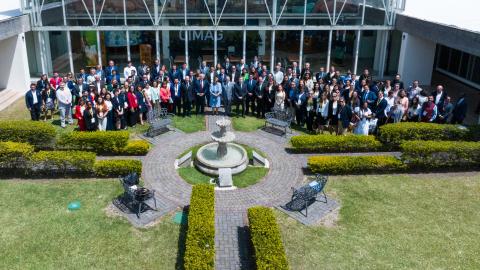Briefing note
The Natural Resources Division of ECLAC participates in the course "Development and production promotion in the subnational governments of Chile: how to design a support policy for the productive sector from the regions"
Between May 5 and July 22, 2022, the course "Development and productive promotion in the subnational governments of Chile: how to design a support policy for the productive sector from the regions" was held with the participation of more than 60 representatives of the regional governments of Chile from the Department of Promotion and Innovation of the SUBDERE and representatives of the National Planning Department of Colombia.
ECLAC, through the Water and Energy Unit of the Natural Resources Division, was in charge of giving the sessions “Approach to the Nexus between Water, Energy and Food in Latin America and the Caribbean” and “Towards a Sustainable Water Transition and Inclusive in Latin America and the Caribbean”.
The first ECLAC intervention was given by the economic affairs officer of the Unit, Silvia Saravia Matus, who, with the aim of training professionals on the relevance of developing policies with an intersectoral perspective, presented the introduction to the Nexus between water, energy and food in Latin America and the Caribbean, in a context of global change. Silvia highlighted the relevance that this approach has for the management of natural resources in the region, particularly in the face of climate change, the growing pressure and competition for the use of these resources at the territorial level.
Next, Marina Gil Sevilla, senior assistant of the Water and Energy Unit, presented the methodological guide for the design of actions with a focus on the Nexus between water, energy and food for Latin American and Caribbean countries. Marina underscored the usefulness of the guide as a tool for strengthening institutional capacities, of decision makers, responsible for public policy, who need to develop policies with an integrated approach.
To end the first session, Alba Llavona, official consultant of the Water and Energy Unit, exemplified the application of the guide, with the practical case of evaluation of the National Basin Plan of the Plurinational State of Bolivia.
The second intervention of ECLAC began with the intervention of Marina Gil who explained the regional context of water resources, the main challenges at a territorial scale and the need for a sustainable and inclusive water transition in LAC. Next, Silvia Saravia Matus closed this space with the presentation of the opportunities to accelerate compliance with SDG 6 (Ensure the availability of water and its sustainable management and sanitation for all) and the relevance of the above in the Chilean context.
Once both sessions were over, a space for questions and answers was held for the active participation of all those attending the lesson, where specific challenges of water resource management in Chile emerged, such as the fight against the effects of the mega- drought , access to rural drinking water, and contamination of groundwater due to poor management of wastewater. In this regard, ECLAC highlighted the challenge of making these problems visible and putting the evidence on the table with numbers, since it is estimated that 2% of the world's GDP is needed to overcome the problems of water management, which is why we must call to action to mobilize resources and encourage these investments.



